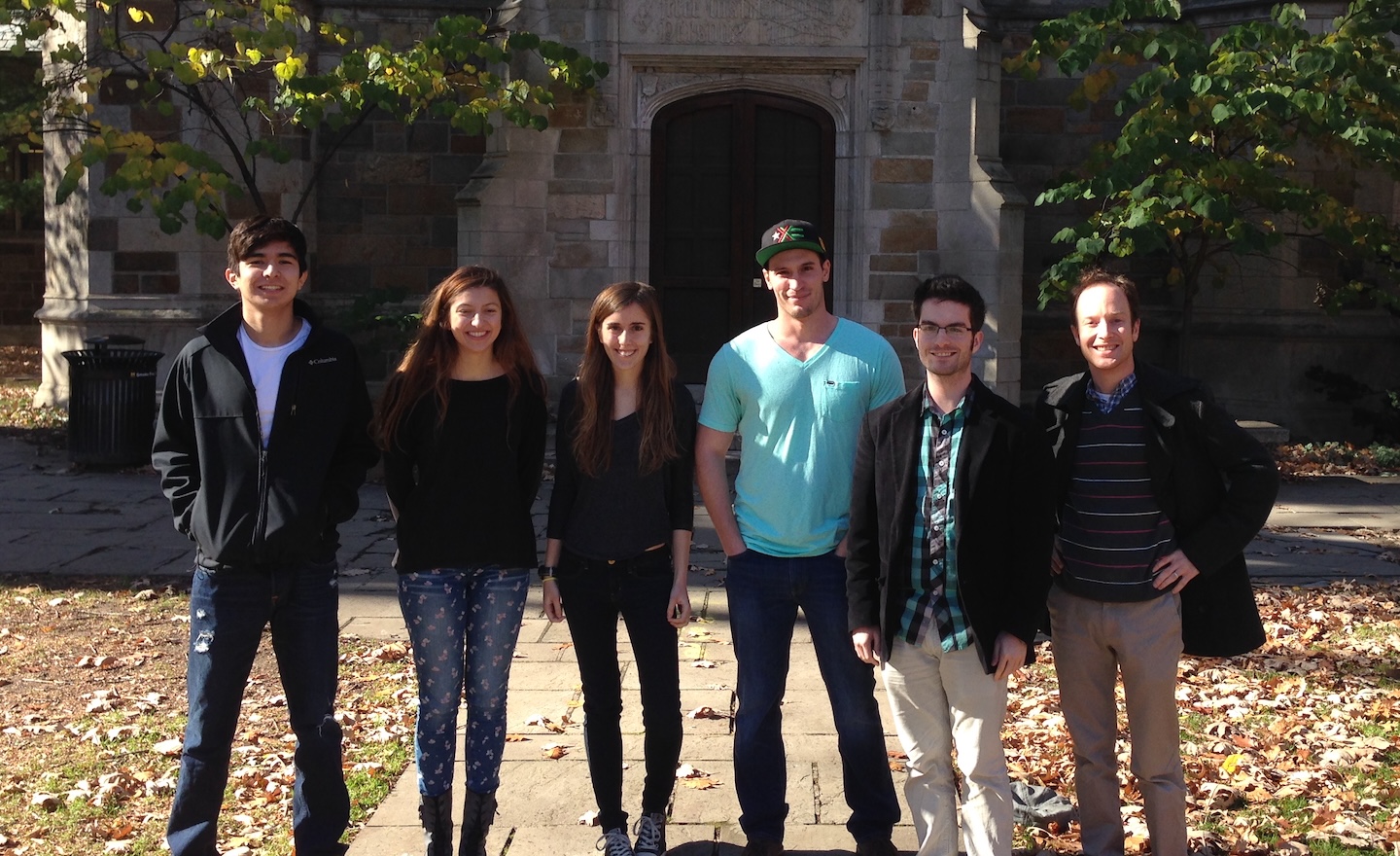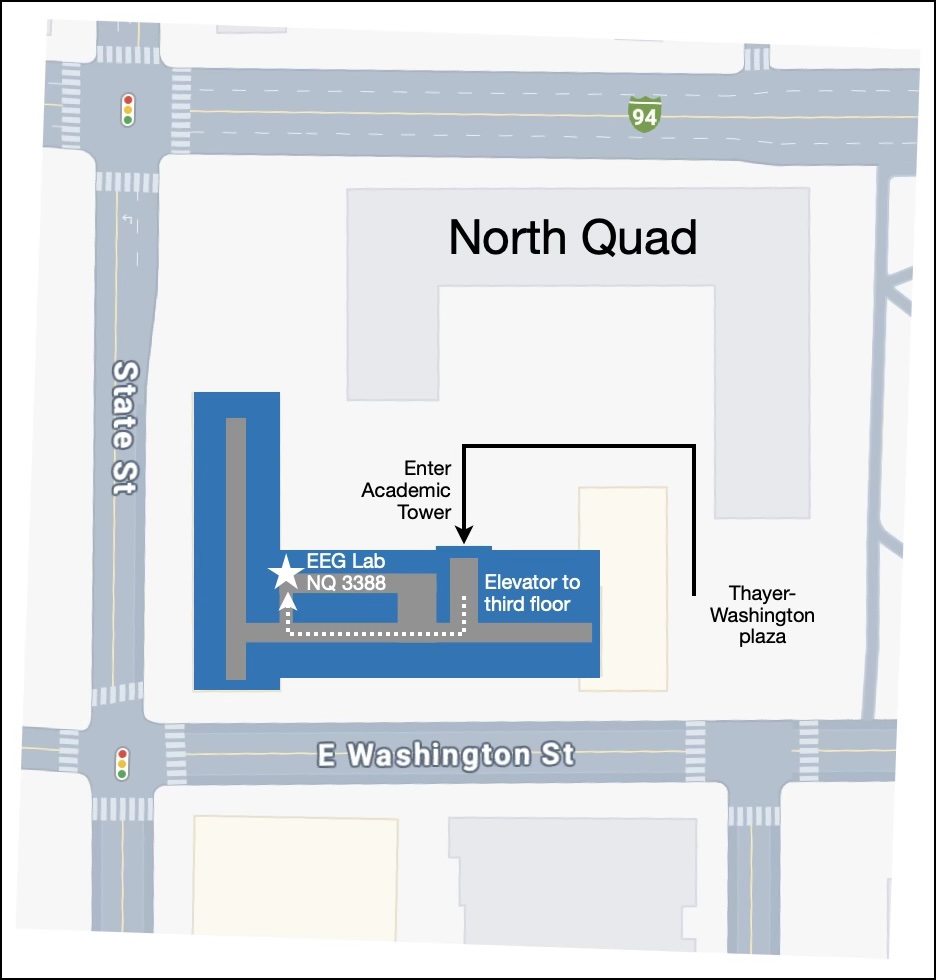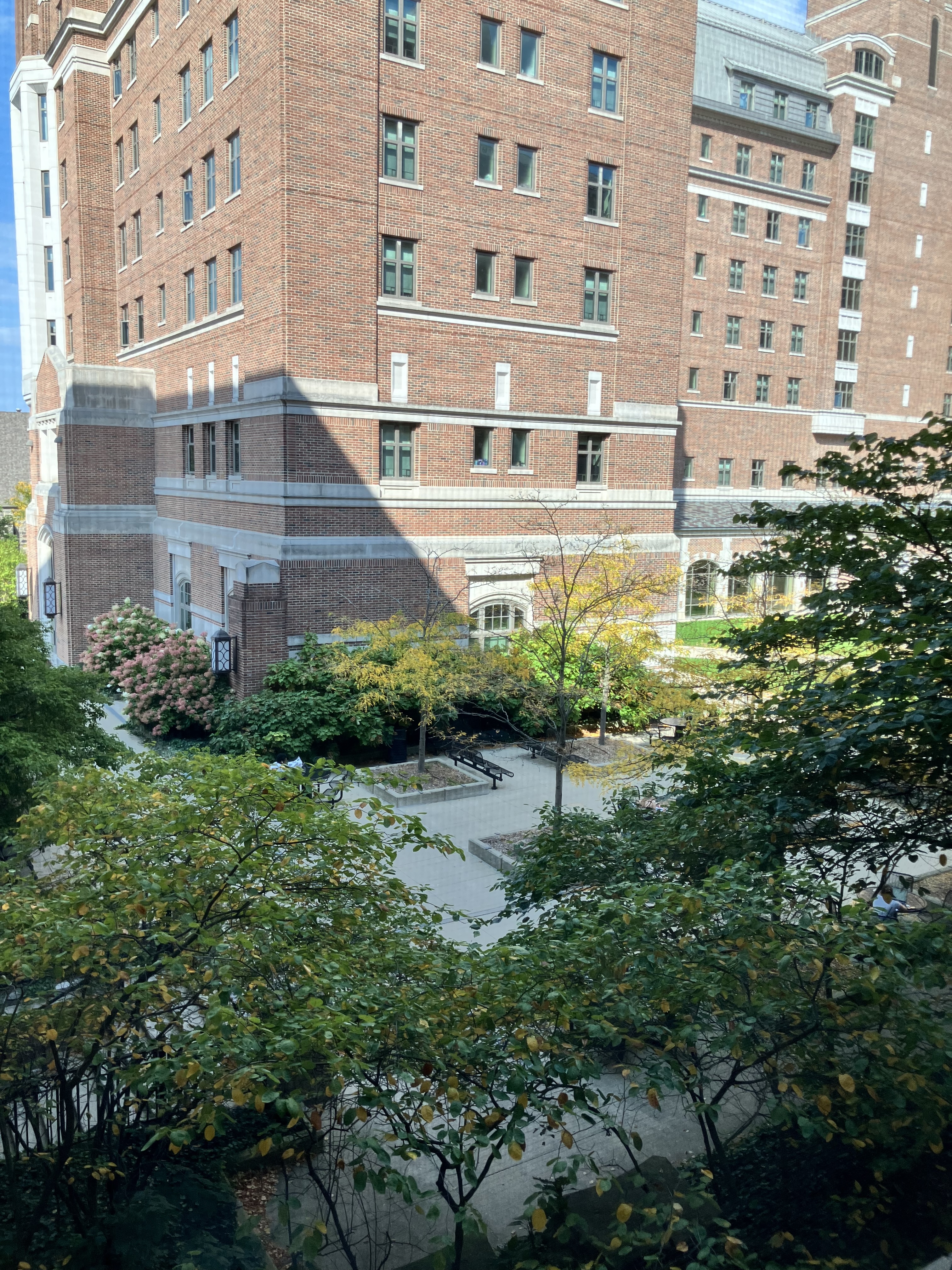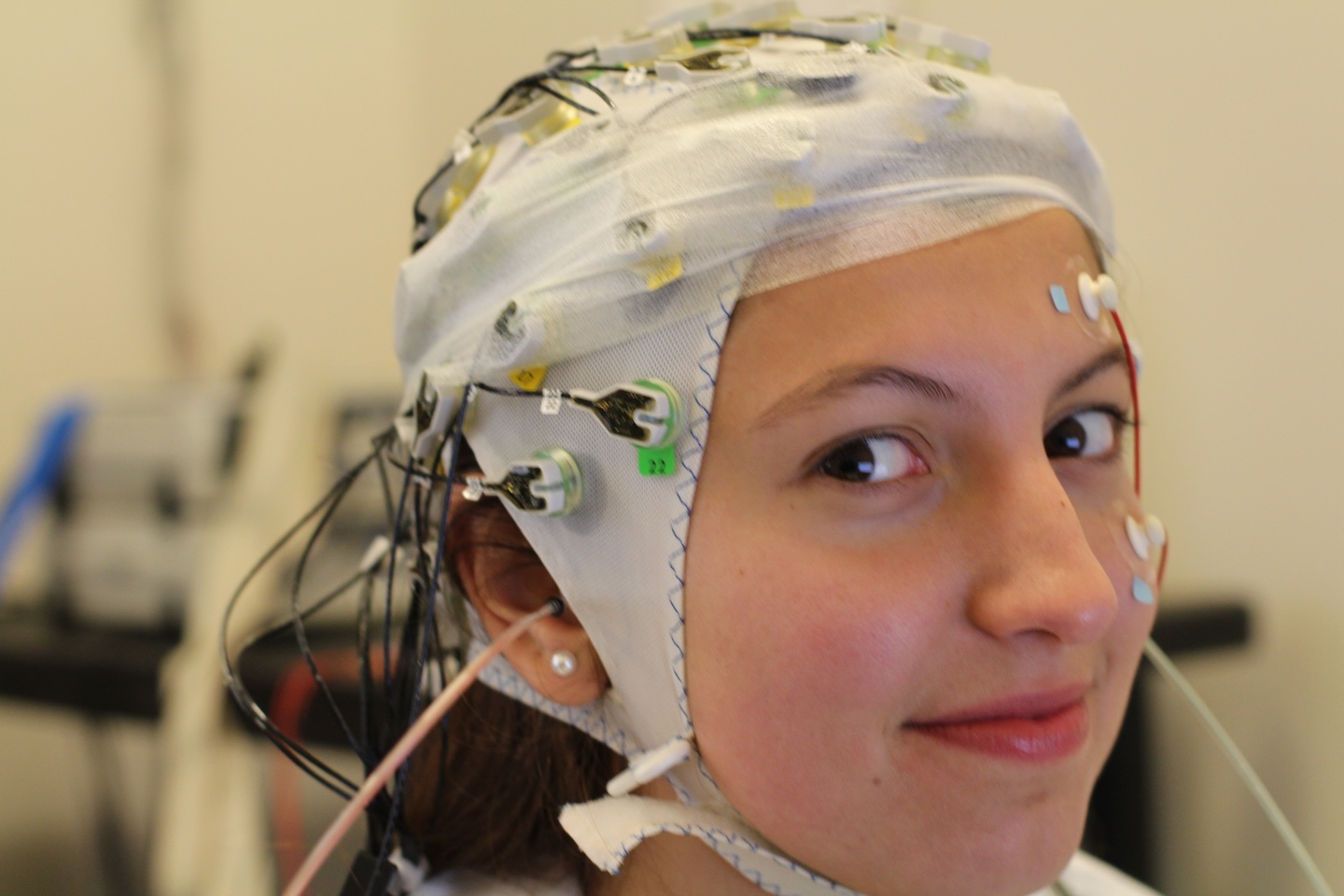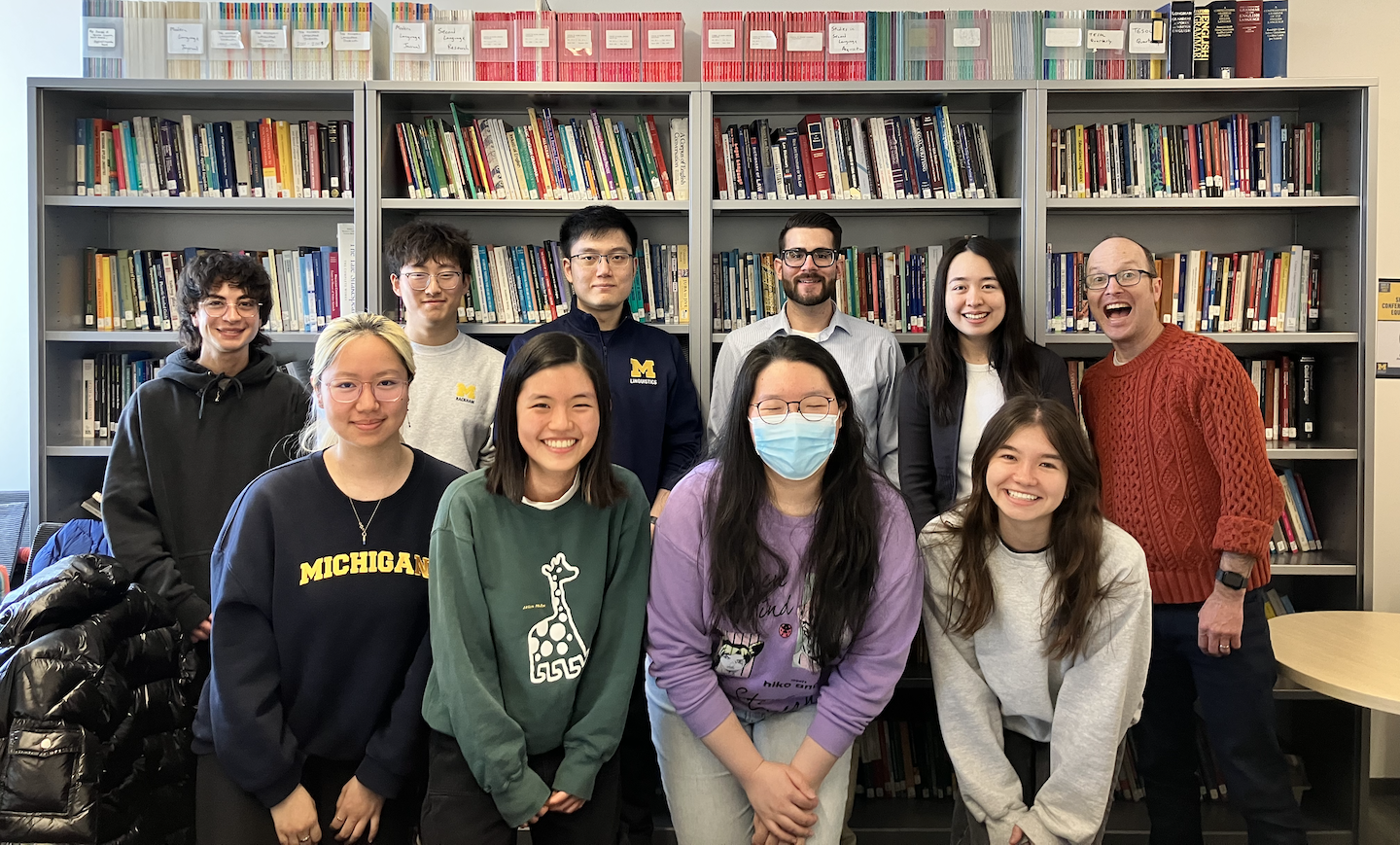
Founded in 2012, The Computational Neurolinguistics Lab at the University of Michigan studies the cognitive and neural processes that derive meaning from speech and text. Our long-term goals are to specify the algorithms by which linguistic input is converted in to mental representations of meaning, including sentence meanings (such as propositions), word meanings (such as concepts), and social aspects of meaning. We further aim to characterize the neural circuits that implement these algorithms. We use a whole range of tools, including EEG, fMRI, MEG, and behavioral data. We apply these tools with an emphasis on natural or “every-day” language comprehension.
There are a few ways to get a “birds-eyed view” of our work, including:
Listen to Jon on the Brain Inspired Podcast discussing brains, language, and AI
Read our 2022 review article in Annual Reviews of Linguistics
Of course, there are many places to go for a deeper dive:
- Take a look at the list of our publications
- For the newest stuff, check out talks and posters from lab members
Facilities
We use a wide range of methods in the lab, from state-of-the art neuroimaging to behavioral testing and judgments that are the mainstay of cognitive psychology and linguistics.
EEG Laboratory
The EEG Laboratory is located in room 3388 on the 3rd floor of the North Quad Academic Tower at 105 S. State Street, Ann Arbor MI. The lab includes a BrainProducts actiCHamp+ amplifier, a 32-channel array, and a range of elastic caps (10/20 montage)suitable for adults.
Recording takes place in a sound attenuated booth. Visual stimuli are presented via a 23″ LCD monitor and auditory stimuli are delivered with Etymotic ER-2 tube ear-phones. Responses are be collected via microphone, keyboard, or a consumer game controller. Experiments are conducted using E-Prime, PsychiPy, and other packages.
EEG recording is aligned with stimulus presentation by (i) impulse codes sent by the stimulus presentation software to the EEG amplifier and (ii) direct feed of the acoustic signal heard by the participant to the EEG amplifier and/or direct input from a screen-mounted photodiode.
Magnetic Resonance Imaging
The University of Michigan Functional Magnetic Resonance Imaging Laboratory hosts two research-dedicated MRI scanners operating at 3T. We also partner with researchers affiliated with the Cornell MRI Facility to study sentence and story-processing in adults.
Magnetoencephalography
We conduct magnetoencephalographic research in collaboration with Susan Bowyer at the Henry Ford Hospital Center for Neuromagnetism. This center, just 45 minutes away from Ann Arbor, hosts a 148-channel Magnetometer as well as facilities for behavioral testing. The facility is especially well suited for making pediatric participants and their families comfortable.
Data Analysis
Computer resources for data analysis include HP workstations located in North Quad. All data are stored on network drives with offsite backup. Statistical analysis is supported by the Center for Statistical Consultation and Research. Advanced statistical analysis and intensive computational modeling may be conducted on the Great Lakes High Performance Computing cluster. Digital data are safely and securely on the university-hosted Turbo storage service.
